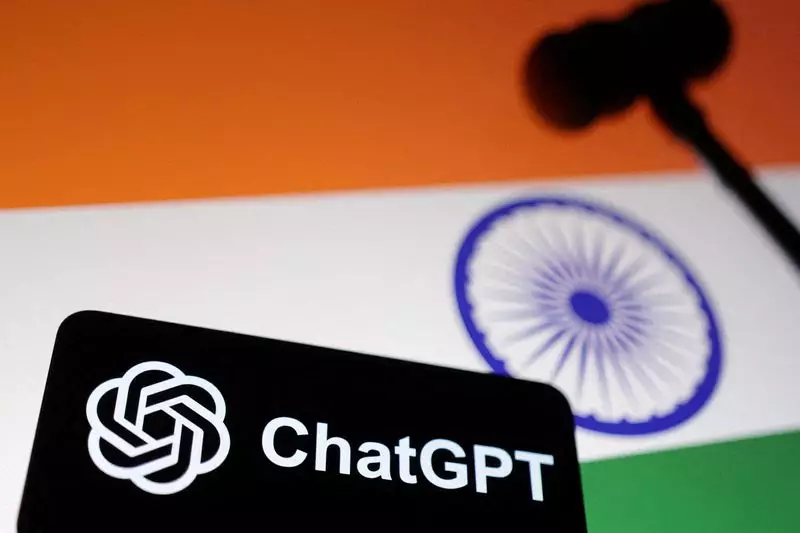In a significant development reflecting the evolving landscape of digital media and artificial intelligence, several notable Indian news organizations are gearing up to confront OpenAI over alleged copyright violations. Major players such as NDTV, owned by billionaire Gautam Adani, and Network18, associated with Mukesh Ambani, have officially entered the fray by joining a legal battle initiated by the news agency ANI. The crux of the issue lies in the concern that OpenAI’s AI models, such as ChatGPT, are improperly utilizing content from their news websites, effectively scraping material that is protected under copyright laws.
The case has been filed in a New Delhi court, and it underscores the rising apprehension within the Indian media industry about the potential exploitation of their intellectual property by AI technologies. The legal documents outline a formidable argument against OpenAI, labeling its conduct as a “clear and present danger” to the financial and creative rights of the affected news entities. Citing specific instances of “wilful scraping and adaptation of content,” the media outlets assert that their work is being repackaged without consent, undermining their business models and threatening their sustainability in an already competitive market.
This legal confrontation is not an isolated incident; it is part of a global trend where various authors, publishers, and artists have begun to scrutinize how AI technologies leverage their copyrighted work for training purposes. Courts around the world are increasingly becoming battlegrounds for intellectual property disputes as creative professionals and firms grapple with the implications of AI-generated content. The ramifications of this conflict extend beyond the legal sphere; they strike at the heart of the ongoing dialogue about the ethics of AI, fairness, and the rights of creators in a rapidly digitizing world.
The Composition of the Coalition Against OpenAI
The initiative taken by the Digital News Publishers Association (DNPA), which represents nearly 20 major companies, illustrates a collective response to these challenges. This coalition not only includes print newspapers but also extends to television news networks, showcasing a unified front in addressing concerns over intellectual property. Notably, while the Times of India is a member of the DNPA, it has chosen not to participate in this particular lawsuit, raising questions about the unity of stance among major media corporations in India.
OpenAI’s Rebuttal and the Future Outlook
In terms of OpenAI’s position, the organization has countered these accusations by asserting that its systems utilize publicly available data in a manner that is consistent with fair use principles. Therefore, the unfolding situation will likely revolve around the legal interpretations of copyright law vis-à-vis the public domain and the nuances of fair use. As the case progresses, it may set pivotal precedents that define the relationship between technology firms and media content creators, shaping the future dynamics of AI development and copyright protections.
As the confrontation escalates, it has become clear that the digital age brings forth not only innovation but also complex legal dilemmas that resonate deeply within the fabric of societal values regarding creativity, ownership, and the importance of upholding intellectual property rights in a rapidly changing world.

